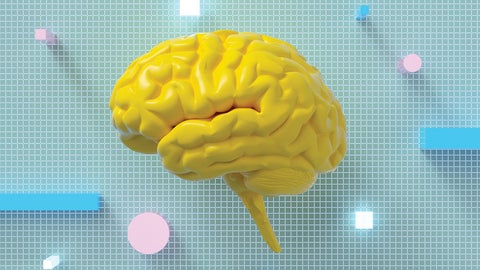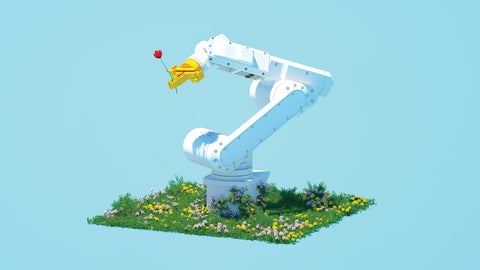
Our world is changing, and we must evolve with it.
The world continues to face multiple, compounding major crises that cut across society, health, the environment, technology and the economy.
- The COVID-19 pandemic has exacerbated social and economic inequities and exposed the fragility of our healthcare and education systems.
- The breakdown of the rules-based international order has enlarged geopolitical tension and ongoing armed conflict in many parts the world.
- Demographic transitions will result in many countries, including our own, having a much older population, while other regions, such as Africa, grow significantly.
- Technology is dramatically disrupting the way we work, live and connect.
- We are facing up to the ongoing harms of colonialism, the need for reconciliation with Indigenous peoples, and action to address hate-motivated injustice and violence.
- Our biggest threat remains the climate catastrophe placing into unparalleled urgency the very survival of our planet.
These complex challenges are felt locally and globally. They are pressing opportunities for us to work with others towards new approaches to teaching and learning and to the creation of new ideas and collaborative solutions.
Addressing the world's most pressing challenges
The future we imagine for humanity and our planet is at the core of the Global Futures, which will inspire collaborative and interdisciplinary approaches in our educational programs, research, and innovation activities. To make the most impact, we need to focus on the areas where we can leverage our strengths and differentiators.
Five interconnected futures for humanity, aligned to our academic and research strengths, help us to focus and co-ordinate our work across disciplines and organizational boundaries. Each overlap with the others and it’s in these intersections where Waterloo’s tenacity for identifying new opportunities, solutions and leading change will shine.
Fundamental research and scholarship
Underpinning our work across these Futures is our relentless commitment to fundamental research and scholarship.
A spirit of curiosity and commitment to excellence in fundamental research and scholarship advances our understanding of ourselves, our planet and the cosmos and enables the ongoing development of technologies, innovations and applications we cannot imagine today.
We must always keep at heart the core mission of the University to advance learning and knowledge through teaching, research, and scholarship, nationally and internationally, in an environment of free expression and inquiry. Academic institutions such as ours occupy a privileged position in society; with that comes a responsibility that our work serves society to protect and preserve the values of our community and nation.

Societal futures
How do we share and translate knowledge to positively advance society’s future and ensure that communities and everyone within them thrive?
Demographic transformations, increased migration, digitization and automation, shifting geopolitical relations and declining trust in democratic institutions are among the forces transforming society. While there is a deeper understanding of the global legacies of colonialism and social injustices, our social echo chambers contribute to polarization and disinformation, stifling constructive dialogue across different points of view and lived experience.
Across our academic, research and service activities we should consider the impacts on society. Within our campuses, which are mirrors of society, we can innovate and apply new models to ensure every member of our community belongs and thrives.

Health futures
How will we ensure everyone achieves optimal health and well-being? How can we redesign our health systems through technological advances, virtual care and health data applications?
Many physical and social determinants of health contribute to our well-being yet too many individuals and communities do not achieve the best possible health status. Those that are sick or injured navigate complex health systems that are unsustainable, under pressure from escalating costs, and facing shortages of health professionals and an aging population.
Waterloo is poised to take a unique leadership position in this space by focusing on our strengths at the intersections of health, society, technology and entrepreneurship and engaging partners to co-create solutions that advance population health and support the development of more sustainable community-based health systems.

Sustainable futures
How will we enact the social, economic and geopolitical changes required to ensure a prosperous future for humanity and the planet?
The sustainability of our quality of life is intricately connected to our social, economic and environmental well-being. While the global climate emergency is the greatest threat to our collective future, we are also challenged in preserving biodiversity, ensuring clean water for all and producing enough food for a growing planet.
Waterloo is already a leader in sustainability research and education. We can build on this strength to help direct society towards a sustainable future. We can lead across our campuses by implementing innovative solutions to achieve and exceed our targets for sustainability.

Technological futures
How will we lead the next technological transformation to ensure a safe and human-centered digital future?
Technology continues to accelerate at an exponential pace, bringing both benefits and new challenges. Emerging technologies are often adopted before the full impact on culture and human behaviour is understood.
We have seen that big data can be harnessed to help governments and organizations make informed decisions and address equity and equality concerns. But this has also led to a loss of privacy and inequitable distribution of wealth. Cybersecurity and gaps in data literacy are ongoing risks. The world is now demanding that innovators develop technology with greater responsibility and accountability.
As Waterloo continues to lead in technology and innovation in critical areas, we have an opportunity to shape technology to serve society, rather than letting technology shape us.
Although it is impossible to predict technological advances over the next 35 years, we can help shape future technologies for good. Instead of asking “what?” we will ask “what for?” We will integrate Waterloo’s strengths to advance technology that is responsible, sustainable and socially viable.

Economic futures
How do we create equitable and resilient local and global economies to lead us into the future?
Technology is transforming the economy and the world of work with the rise of remote and hybrid workers, increased automation and artificial intelligence. New technology can increase efficiency and flexibility, but the workforce must keep up with new systems. Life-long learning will become increasingly important as individuals need to upskill, reskill and reimagine their careers in addition to benefits for personal growth and enlightenment.
At the same time, labour shortages, disruptions to supply chains, and geopolitical and digital threats have shown us the vulnerabilities and risks inherent in our economy. Canada faces serious challenges with productivity growth, and without a significant change in course we will not have the resources necessary to advance these futures and the challenges ahead.
We have the foundation to shape innovative ecosystems and develop talent to help create more equitable, resilient and future-proofed economies. Already a leader in work-integrated learning, we can expand our mandate to support learning-integrated work to help organizations and individuals keep pace with technology and the changing world of work. We can grow our business and entrepreneurial education strengths to include leadership in social entrepreneurship and innovation targeting the public good.